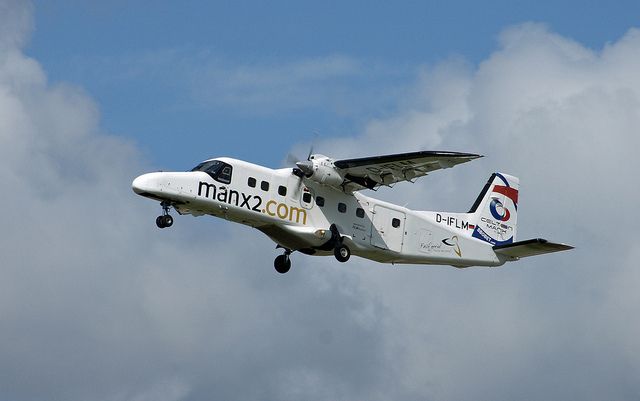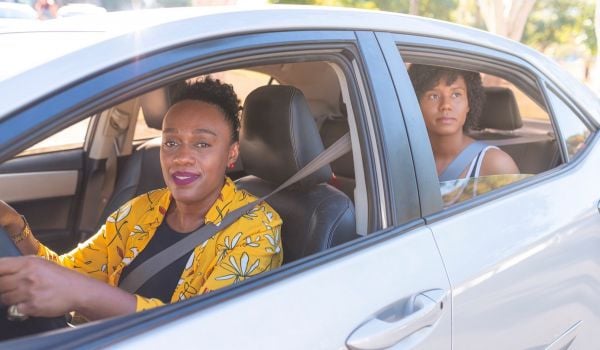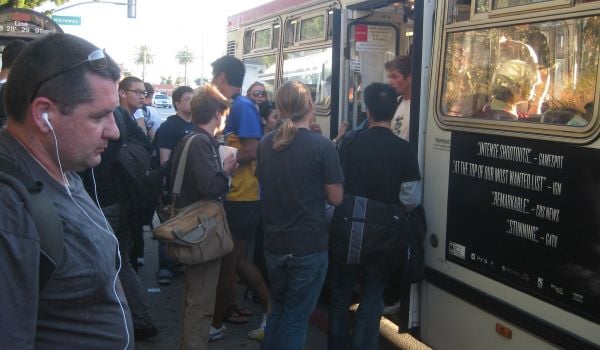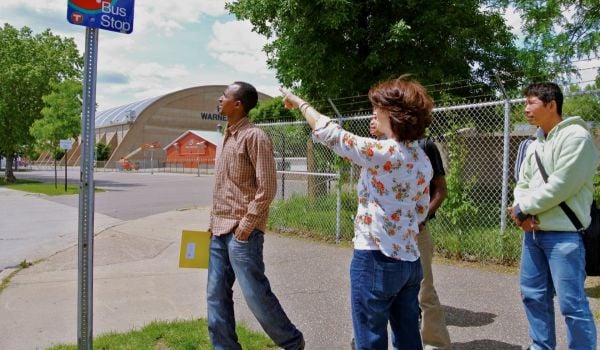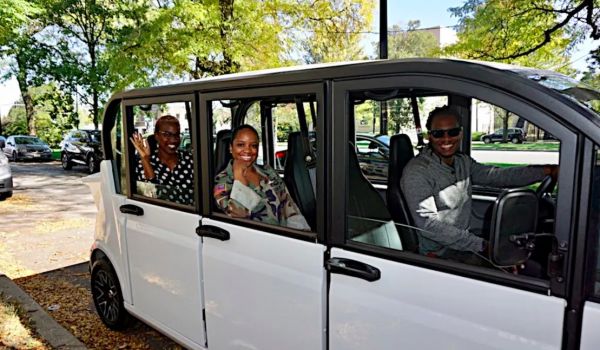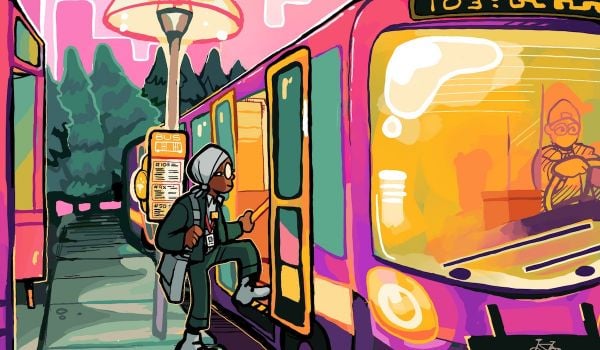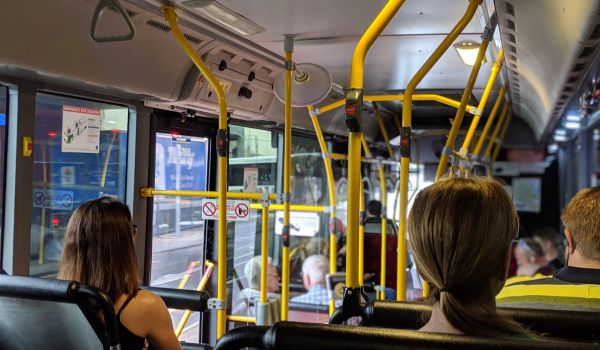Over at the New York Times, David Streitfeld highlights the newly released accident report from the 2011 crash in Ireland of an aircraft operating under the banner of Manx2, a now-shuttered low-cost European airline. Only Manx2 was never much of an “airline” at all, Streitfeld reports, in a way that became clear after the February 2011 crash that killed two pilots and four passengers on board:
It was resolutely earthbound, a mere ticket seller. Someone else was responsible for what happened up in the sky.
The crash, which took place on a foggy morning at the Cork, Ireland, airport three years ago, is now the subject of a lengthy report by Ireland’s Air Accident Investigation Unit. As entrepreneurs invade formerly regulated spheres like ground transportation, short-term lodging and perhaps even medical care, it makes for alarming reading.
The flight that left from Belfast that day was the product of the involvement of several players:
The plane, a Fairchild Metro III that took off from Belfast, was owned by a Spanish bank and leased to a Spanish company. It was then subleased to another Spanish company, Flightline, which in essence rented the plane and pilots to Manx2.
While it may seem crass to use airplane fatalities as fodder for the argument, Steitfeld saliently makes the point that there are similarities here to modern networked businesses, where responsibility can be just as complex. According to the Times piece, Manx2 took the approach that it did because the company “did not want to have the regulatory complexity” that comes from running an airline. There are echoes of that in Uber’s origin story. As we reported in our deep dive into Uber’s regulatory battles from November, co-founder Garrett Camp’s original vision for the company was purchasing a bevy of Mercedes Benz S-Classes, leasing a garage to house them, and hiring drivers to drive them. But:
[Co-founder Travis] Kalanick had little interest in bogging himself down with cars, garages or drivers. So the pair came up with a lighter-weight plan: An app, accessible only by private code handed to a hundred friends, that would instantly summon a black car. They’d simply be the cleverly engineered software layer between riders and existing black cars on the road. “It wasn’t about taking over the world,” Kalanick has said. “It wasn’t about taking on corruption in every city around the world. It was actually just about being baller in San Francisco.”
In the case of Manx2, all indications suggest that the company wasn’t run all that well and had safety shortcomings before the crash. One of the more perplexing questions when it comes to networked, technology-driven “sharing economy” companies is whether those kinds of problems are an intrinsic flaw in the model. It’s a question that’s popped up in the wake of a New Year’s Eve crash that killed a 6-year-old girl in San Francisco. Uber is being sued over the girl’s death, and the company has argued that “This tragedy did not involve a vehicle or provider doing a trip on the Uber system,” because, it seems, the involved “partner driver” wasn’t ferrying an Uber-arranged fare when the crash occurred.
As Streitfeld points out, this slicing and dicing of responsibility will be one of the central questions facing the “sharing economy” as it evolves. He points to a recently filed lawsuit in Chicago in which cab drivers and owners argue that ride share services like UberX, Lyft and Sidecar have, with the blessing of Mayor Rahm Emanuel, engaged in “systematic, intentional, brazen, open and notorious lawlessness.” Allowing those firms to operate without the burdens of regulation that taxis face, they argue, amounts to unfair competition, devaluing their medallions but also exempting the new firms from hard-won consumer protections. Uber et al, they argue by way of one example, are “free to cherry-pick rides in wealthier areas.” It’s an analysis of the situation with which Kalanick, at least at one point, wouldn’t have necessarily disagreed. It was the “regulatory arbitrage” exploited by companies like Lyft and Sidecar, he has said, that convinced him to get into ride sharing in the first place.
The cabbies and Kalanick do disagree over where that leaves Uber today. “Notwithstanding Uber’s attempts to characterize itself as a mere matchmaker of riders and drivers,” reads the complaint in the Chicago case, “Uber (as well as other Unlawful Transportation Providers) is a common carrier as a matter of law. A common carrier owes its passengers the duty to use the highest degree of care consistent with the type of vehicle used in the practical operation of its business.” The highest degree of care, they argue, means accepting responsibility when things go wrong, as they inevitably will. The notion of Uber as a utility-esque common carrier, though, is one the company dismisses out of hand. When, here at Next City, we described Uber as a “black car company,” a spokesperson complained, arguing that the company is better described as “a technology company that connects riders with high quality transportation providers.” That doesn’t quite fit in a headline — and doesn’t, arguably, capture the depth of Uber’s involvement in arranging rides, working with drivers and taking a substantial cut of the proceeds.
Are these semantic, even academic distinctions? Streitfeld suggests that they’re not. Some of those observing the “sharing economy” agree, and point to the sort of slicing and dicing that predated the 2008 mortgage meltdown in the U.S. Tactics like tranching and the reselling of mortgage notes over and over again, they argue, separate those on one side of the business transaction from those on the other. We’re left with interlocking moving parts, but the notion of responsibility seems to fall between the cracks. That can, as we saw with what happened to the economy, mean bad news for the public. But it can also harm an otherwise fruitful market, as it becomes unable to do the sort of checks and balances needed to keep it chugging along.
That leaves us with a central challenge for the next few years: Figuring out whether we can reap the considerable benefits of the platform-driven “sharing” model — scalability, flexibility, the freedom it gives individual providers of services — without the downsides of becoming so layered that no one is, in the end, responsible for anything. No doubt, for we customers, there are tremendous benefits. Cars appear out of nowhere. Sweet apartments in neat neighborhoods are suddenly affordable. Doctors will see us at home. But no-look mortgages seemed like a pretty great deal for a while, too. We’re quickly getting to the point of awareness about what the trade-offs are — and whether they’re the best ones for us.

Nancy Scola is a Washington, DC-based journalist whose work tends to focus on the intersections of technology, politics, and public policy. Shortly after returning from Havana she started as a tech reporter at POLITICO.

